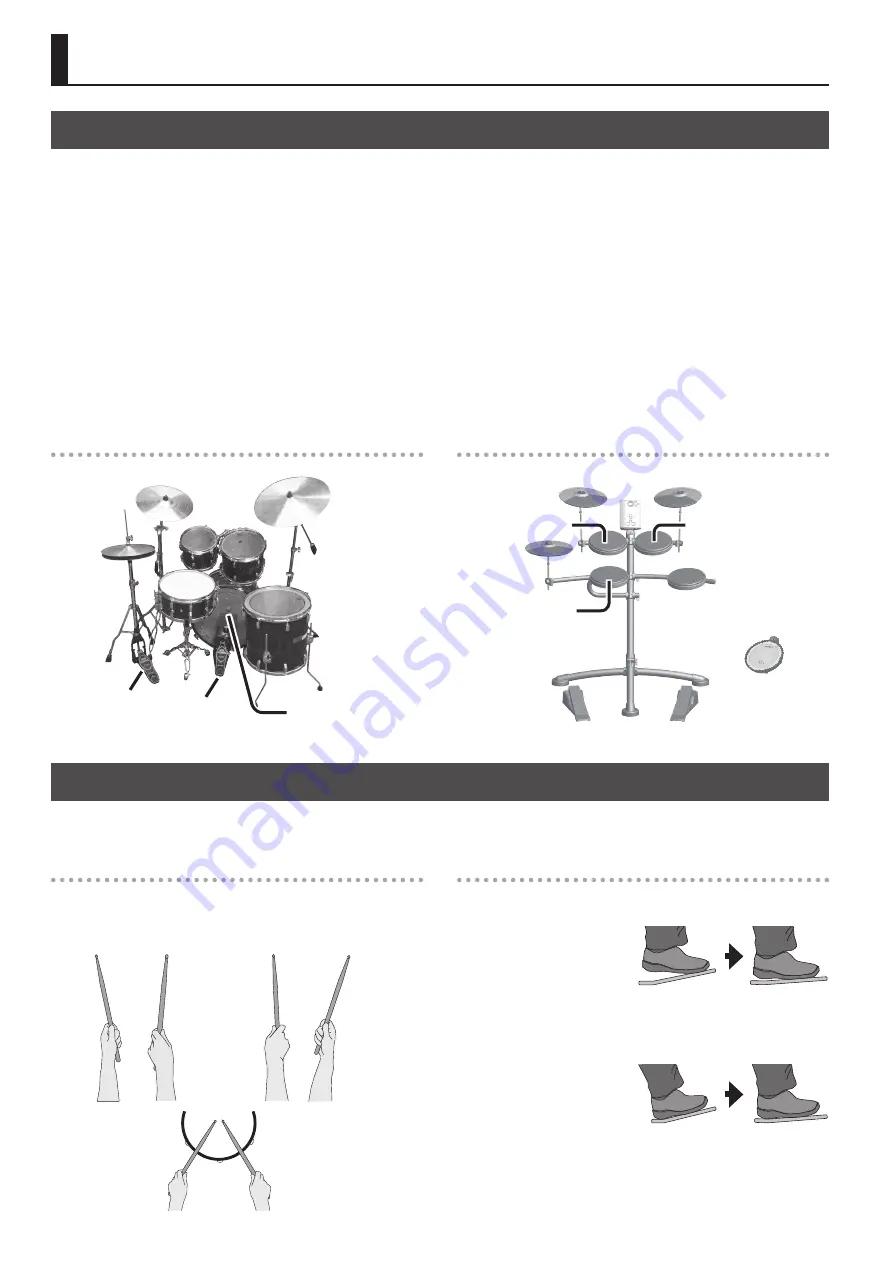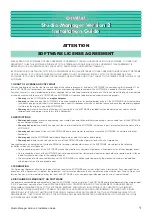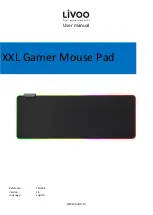
2
Let’s Learn About Drums
Bass drum/Kick Pedal
Played with a kick pedal, it’s the largest drum in the kit.
Snare drum
The snare drum is the main “voice” of a drum kit.
Hi-hat/Hi-hat pedal
An acoustic hi-hat uses 2 cymbals mounted on a hi-hat stand.
Pressing the hi-hat pedal opens and closes it.
* The TD-1KV/TD-1K uses a single pad.
Tom (Tom 1, Tom 2)
These are usually mounted above the bass drum.
Floor tom (Tom 3)
Sometimes called a bass tom, it either stands on it’s own legs or is
mounted on a stand.
Ride cymbal
Usually mounted on the right side of the kit, the ride cymbal is
principle elements in keeping time.
Crash cymbal
Smaller than the ride, the crash cymbal is mainly used for accents.
Drum Set Elements
Here are some basic terms related to drum sets.
Acoustic drum
Hi-hat
Ride
Snare
Tom
Floor tom
Hi-hat pedal
Bass drum
Kick pedal
Crash
TD-1KV/TD-1K
Tom 1 (T1)
Tom 2 (T2)
Tom 3 (T3)
Crash (CR1)
Hi-hat (HH)
Hi-hat pedal (HHC)
Kick pedal (KIK)
Snare (SNR)
Ride (RD)
* The illustration shows the
TD-1K. The TD-1KV has a
different snare pad.
The Basics of Playing
Drums are played using both hands and both feet.
Here we’ll explain how to hold the sticks and use the pedals.
Holding the sticks
The most common way to hold the sticks is called the “matched
grip” as shown in the illustrations below.
Left hand
Right hand
Using the kick pedal
The kick pedal can be pressed in either of two ways: “heel up” or
“heel down.”
Heel up
In this method, your heel
floats above the pedal.
With your heel off the
pedal, lower your entire foot to push down the pedal.
This method applies the full weight of your leg to the pedal, making
it easier for you to produce a stronger sounds than the heel down
method. This is often used in rock and pop.
Heel down
In this method, the entire
bottom of your foot from
heel to toe stays in contact
with the pedal. Use your ankle joint to make your toes push down
the pedal. This method allows more precise control of the volume,
and is often used in jazz and bossa nova.
































